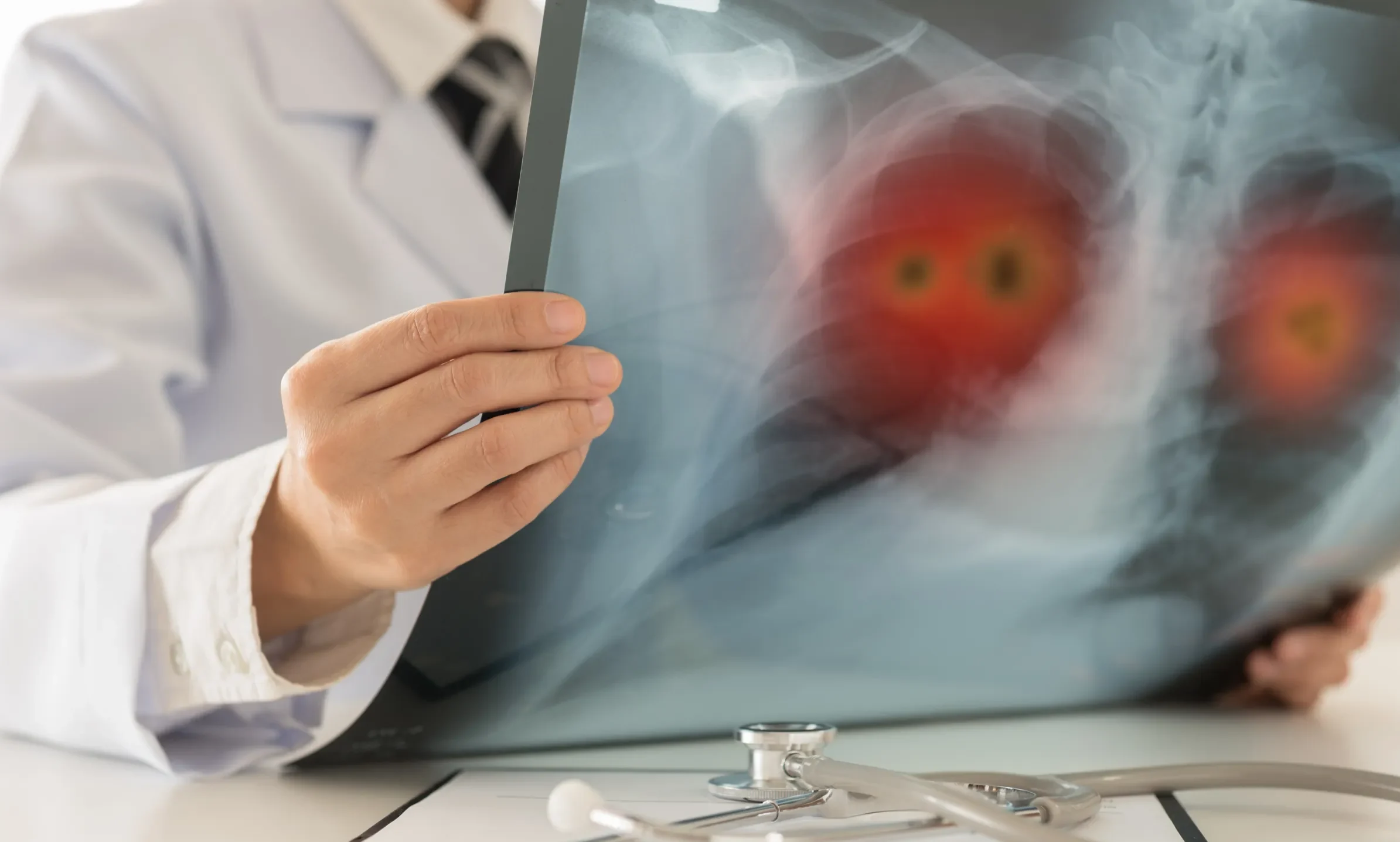-
 News
According to a WHO report, one in six people worldwide suffers from loneliness
News
According to a WHO report, one in six people worldwide suffers from loneliness
-
 News
Australia launches national lung cancer screening program: a new approach to cancer prevention among high-risk patients
News
Australia launches national lung cancer screening program: a new approach to cancer prevention among high-risk patients
-
 News
In stressful situations, people make riskier decisions
News
In stressful situations, people make riskier decisions
-
 News
Stem cell transplantation can completely cure people with severe diabetes
News
Stem cell transplantation can completely cure people with severe diabetes
-
 News
Updated COVID-19 vaccines have been shown to be effective against severe forms of the disease
News
Updated COVID-19 vaccines have been shown to be effective against severe forms of the disease
All news
Langerhans cell histiocytosis treatment
Langerhans cell histiocytosis — a rare blood disease, which is based on immune disorders.
- Incidence: 1-2 people per 100,000;
- Synonyms: histiocytosis from Langerhans cells, histiocytosis X;
- It can occur at any age. Usually begins in childhood.
The illness can affect any part of the body. Often it’s the skeleton (80%), skin (30%), pituitary gland (25%). Abdominal organs, blood, lymph nodes, lungs and the CNS may also be involved.
Leave a request on the MedTour platform. Our coordinating doctor will contact you and help choose a country, clinic and doctor for the treatment of Langerhans cell histiocytosis.
MedTour provides the organization of transfer, air travel and hotel booking.
MedTour patients recommend clinics for the treatment of langerhans cell histiocytosis:
Doctors for the treatment of langerhans cell histiocytosis
Frequently Asked Questions
Langerhans cell histiocytosis — a systemic disease characterized by excessive formation of abnormal Langerhans cells with their subsequent accumulation in different organs.
This accumulation of cells affects various organs and organ systems: bones, liver, skin, eyes and ears, CNS, lungs etc.
Langerhans cells are special cells in the pancreas whose function is to produce hormones.
Pathological Langerhans cells differ from normal cells by the presence of a mutation.
The reason for the development of histiocytosis X is unknown.
It’s believed that there is a violation of the immune system in the form of an abnormal immune response of the body.
- Distinguish histiocytosis:
- Localized (70%): only 1 organ or 1 bone is affected;
- Common: multiple organs or systems are affected;
- In children, depending on age, histiocytosis is distinguished:
- Acute common, or Abt-Letterer-Siwe Syndrome: up to 2 years of age;
- Chronic common, or Hand—Schüller—Christian illness: occurs between 2-5 years;
- Localized appearance, or eosinophilic granuloma of bones: develops after 5 years.
Common signs include fever, exhaustion, and pain in the affected area.
Depending on the affected organ, different manifestations occur:
- Bones: frequent sudden fractures;
- Skin: rash;
- CNS: thirst, growth retardation, frequent urination;
- Circulatory system: pallor, frequent infections;
- Lungs: cough, shortness of breath;
- Oral cavity: swollen gums, tooth loss;
- Swelling of the lymph nodes;
- Gastrointestinal tract: diarrhea;
- Eyes: decreased vision, strabismus;
- Ear: chronic otitis media, runny nose.
The prognosis is favorable for patients over 2 years of age with a limited spread of the illness (lymph nodes, bones, skin). Localized histiocytosis often spontaneously heals.
The prognosis is poor in patients under 2 years of age with multiple lesions of the circulatory, respiratory and digestive systems. Chronic and acute widespread histiocytosis in children is often fatal.
Diagnostics of Langerhans cell histiocytosis abroad
To make a diagnosis, a qualified team of doctors from a leading foreign clinic will carefully study the symptoms and medical history, as well as conduct several studies.
To diagnose Langerhans cell histiocytosis, doctors use the following methods:
- Neurological examination: the doctor will check reflexes and assess the function of the brain, spinal cord and nerves;
- Blood test: the level of erythrocytes, hemoglobin and biochemical parameters is important;
- Abdominal ultrasound: to assess the size and condition of the abdominal organs;
- X-ray: with this method, the doctor will assess whether there is bone lesion;
- MRI or CT of the brain / spine / orbit / abdomen / chest;
- Biopsy of the affected organ: The doctor will take a piece of tissue in order to examine it under a microscope. Biopsy — the most important method for diagnosing histiocytosis.
How foreign doctors treat Langerhans cell histiocytosis
Patients with Langerhans cell histiocytosis are monitored by a team of doctors consisting of oncologists and hematologists.
Based on the age and condition of the patient, manifestations of the illness and other criteria, experienced doctors will develop an individual therapy.
Treatment tactics may consist of:
- Local therapy:
- Antiseptics and glucocorticoids in the form of an ointment or gel;
- Systemic therapy — medication:
- Corticosteroids and cytostatics: methotrexate, mercaptopurine, interferon alfa, vinblastine;
- Surgery;
- Chemo– and radiation therapy;
- PUVA therapy.
Surgery is indicated for localized types of granulomas. Often this type of treatment is used by doctors for eosinophilic granuloma. With this method, doctors surgically scrape out the lesion.
Radiation therapy is used by doctors in inoperable or recurrent cases.
PUVA is used for chronic forms. This treatment is known as photochemotherapy. The skin is irradiated with ultraviolet radiation together with the use of photoactive substances.
Chemotherapy is prescribed to rule out the late effects of surgery or radiation. The use of chemotherapy is justified in common forms with several foci of the disease in different organs.
Published:
Updated:









